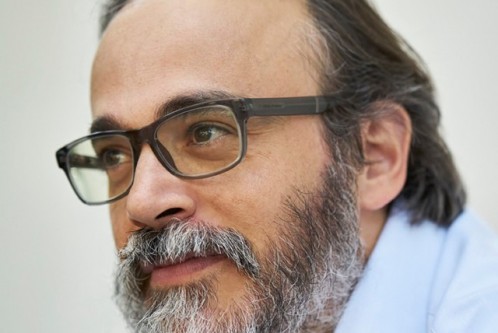 United Kingdom CPE Bach, Stravinsky, Bruckner: Carolin Widmann (violinist), BBC Scottish Symphony Orchestra, Ilan Volkov (conductor). City Halls, Glasgow, 21.2.2019. (GT)
United Kingdom CPE Bach, Stravinsky, Bruckner: Carolin Widmann (violinist), BBC Scottish Symphony Orchestra, Ilan Volkov (conductor). City Halls, Glasgow, 21.2.2019. (GT)

CPE Bach – Symphony No.6 in E flat major, Wq. 179
Stravinsky – Violin Concerto
Bruckner – Symphony No.7 in E major (ed. Novak)
The highlight for this well attended concert was Bruckner’s mighty Seventh Symphony, a work which is not performed as often as it should in Scotland, and indeed the acoustic of the venerable City Hall in Candelriggs offers a fine venue for the glorious splendours of Bruckner’s symphonic masterpiece. The incorporation of classical and neoclassical pieces only added to the programmes flavour. Regrettably, neither of the other two national orchestras in Scotland can match the eclectic repertoire which this ensemble can offer in a blend of modernist music with neglected classical pieces. Ilan Volkov made his reputation with modern repertoire; his Tectonics Festivals performing the most adventurous electronic and avant-garde music of the current day became a regular event in Glasgow, and across the world. It was most interesting to see what the Israeli born conductor could offer in a major symphonic work by Bruckner.
In the brief opening CPE Bach symphony the adopted tempo was brisk and bright, with a rather grey underlying mood; one had the impression that a stiff wind was in the air. The overall tone preceded the style of Haydn, with lightness adorning the Larghetto, whilst the Presto finale was chirpy, upbeat with a measured beat, this was graceful, making good use of a rather simple idea, and towards the end a touch of wit.
For this ensemble, neoclassical Stravinsky was the right choice in this combination of conductor and orchestra and certainly the soloist, Carolin Widmann, is also a reputed advocate of modern music. Her reading of the rarely heard concerto proved memorable; notable was the playing of Widmann’s solo violin whose quirky harmonies were challenged by the brass, and some effervescent woodwind playing, and bright carefree strings. In the second movement, Aria I, there was a wonderful duet with cellos, and in the third movement, Aria II, there entered some dissonance, which led to almost dreamy harmonies, and a gently pulsing idea on low strings. In the Capriccio, the mood was bright, sparkling, upbeat, and the overworked soloist plays almost constantly. The highly gifted German violinist’s playing was nonetheless grazed by sunlight. Stravinsky’s score abounds with perky, boundless music, clean orchestration, bubbling woodwind, and proved overwhelmingly infectious.
It was the Bruckner Seventh which had drawn the large audience to this hall which allows a great symphony to be heard at its best from a huge ensemble on stage, here boasting four Wagner horns, six trombones, five horns, four trumpets and a tuba. The conductor is not one known for his interpretation of this repertoire, however his association with this orchestra goes back to 2003 and one would expect a formidable account from his direction.
The familiar opening bars on the horn, and the low strings – with fluttering violins played so sensitively -invoked images of a great bird in flight over a great mountain range. The development rises slowly to a thunderous crescendo by the whole orchestra with the entire brass section in their glory: Volkov adopted a slightly fast tempo, not always allowing ideas to develop. There was some reedy woodwind, but there was a great contribution from the enlarged strings, here with antiphonal violins and the six double basses placed to the rear behind brass. Volkov doesn’t have sense for luftpause, he keeps the music flowing, and only indicated a brief pause in the final movement. His conducting is a little mannered, without any great sweeps of his arms, and he always keeps everything under control.
In the protracted Adagio, the harmonies of the brass and Wagner horns were suitably funereal, and it was clear that the conductor’s careful preparation ensured a great performance, with the lamenting idea heard admirably on strings: the great prolonged culmination, with the cymbals, triangle and timpani, was tremendously stirring! One must mention the wonderful playing of Charlotte Ashton’s flute in one of the most evocative passages. In the Scherzo, again the thrilling brass was to the fore with exceptional playing from Mark O’Keefe’s trumpet. This superbly performed section, yet without foreboding, allowed the rusticism of a country dance to be marvellously conveyed. In the Finale, again the strings were excellent, as too was the woodwind, and a feature throughout was the strident brass which sounded fantastic. This was a great performance and surely one of the season highlights for this orchestra.
Gregor Tassie
